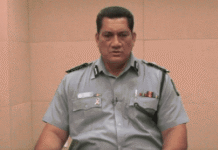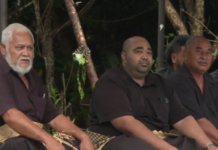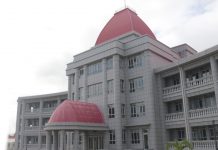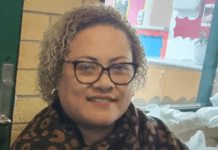The Anti-Corruption Commissioner has promised to do his best to get rid of all kinds of corruption in the kingdom.

Mr Christopher LaHatte, who recently took on the role as the first official holder of this position since the Commission’s inception in July, commented while presenting the Commission’s inaugural Strategic Plan for 2024 – 2029.
The plan offers strong protection for whistleblowers, ensuring that individuals can complain without fear of repercussions.
“As we embark on this journey, we invite constructive criticism and open dialogue”, it said.
Mr LaHatte said he was confident that by working together with the community, they could make “significant strides in eliminating corruption and upholding the law”.
The Commission said it combats “corruption through the promotion of transparency, accountability and integrity in public services”.
It is open to individuals from all walks of life, ensuring everyone can seek assistance and bring their concerns forward.
This contrasts with the Office of the Ombudsman, which primarily addresses issues related to government entities and statutory boards.
Anyone can file a complaint with the Commission about potential corrupt conduct.
“This can be done in person in their office in Nuku’alofa, by email or through their website”.
The staff of the Anti-Corruption Commission recently took part in workshops coordinated by local and Australian counterparts to improve and enhance their investigative skills.
It also actively engaged in a public awareness campaign to disseminate information about its duties and policy. This initiative is intended to educate citizens about the services it provides.
What is corruption?
The Transparency International defines corruption as:
“We define corruption as the abuse of entrusted power for private gain. Corruption erodes trust, weakens democracy, hampers economic development and further exacerbates inequality, poverty, social division and the environmental crisis. Exposing corruption and holding the corrupt to account can only happen if we understand the way corruption works and the systems that enable it”.







